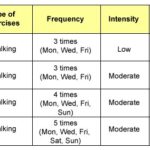Living with diabetes can be challenging, particularly for women who face unique obstacles. From managing dietary restrictions to monitoring their health constantly, these women often find themselves isolated from their social circles. Addressing social isolation in women with diabetes is crucial to ensure their overall well-being and holistic health. By emphasizing the importance of support networks, creating safe spaces for open dialogue, and promoting education and awareness, we can empower these women and help them navigate the complexities of diabetes while fostering a sense of belonging and connection within their communities.

This image is property of images.pexels.com.
In This Article
ToggleUnderstanding the Impact of Social Isolation
Effects of social isolation on women with diabetes
Social isolation can have a significant impact on the well-being of women with diabetes. It can lead to increased stress levels, reduced self-esteem, and feelings of loneliness and depression. For women with diabetes, social isolation can exacerbate their symptoms and make it more challenging to manage their condition effectively. Additionally, social isolation may prevent women from accessing the support and resources they need to effectively manage their diabetes.
Causes of social isolation in women with diabetes
There are several factors that can contribute to social isolation in women with diabetes. One of the main causes is the dietary restrictions and health concerns that come with diabetes management. Women may feel excluded from social gatherings and events where they cannot partake in certain foods or drinks. This can lead to them gradually withdrawing from social activities and feeling isolated from their peers. Other factors, such as mobility issues or the stigma associated with diabetes, can also contribute to social isolation in women with the condition.
Importance of addressing social isolation
Addressing social isolation in women with diabetes is crucial for their overall well-being and diabetes management. Social support plays a vital role in coping with the challenges that diabetes presents. By reducing social isolation, women can have access to a support system that can provide emotional support, practical assistance, and valuable resources. Additionally, reducing social isolation can help improve mental health outcomes and empower women to better self-manage their diabetes.
Building a Support System
Identifying key individuals for support
Building a support system begins with identifying key individuals who can provide assistance, understanding, and encouragement to women with diabetes. This may include family members, friends, healthcare providers, or fellow diabetes patients. These individuals can offer emotional support, accompany women to medical appointments, and provide practical help with daily diabetes management tasks.
Establishing communication channels
Effective communication is essential in establishing a support system for women with diabetes. It is important to establish open lines of communication with supportive individuals, ensuring they are aware of the challenges faced by women with diabetes and how they can provide assistance. Regular communication can help foster a sense of connection and ensure that women feel supported and understood.
Joining diabetes support groups
Diabetes support groups offer a valuable platform for women to connect with others who share similar experiences. These groups provide a safe space for sharing concerns, discussing coping strategies, and gaining emotional support. By joining a support group, women with diabetes can reduce feelings of isolation and gain insights from others facing similar challenges. Support groups may be available locally or online, providing a variety of options for women to choose from.
Addressing Emotional Well-being
Recognizing and managing stress
Stress management is crucial for women with diabetes, as stress can have a significant impact on blood glucose levels. It is important to recognize the signs of stress and develop effective coping strategies. This may include engaging in relaxation techniques such as deep breathing exercises, practicing mindfulness, or participating in activities that bring joy and reduce stress levels.
Promoting self-care and self-esteem
Self-care is essential for the overall well-being of women with diabetes. Encouraging women to prioritize self-care activities such as regular exercise, sufficient sleep, and healthy eating can promote physical and emotional well-being. Additionally, promoting self-esteem through positive affirmations and self-acceptance can help combat the negative effects of social isolation and enhance mental well-being.
Seeking professional mental health support
In cases where social isolation and its subsequent effects on emotional well-being become overwhelming, it is important to seek professional mental health support. Mental health professionals can provide therapy, counseling, and guidance tailored to the specific needs of women with diabetes. This support can be instrumental in managing stress, addressing emotional challenges, and promoting overall mental well-being.
Nutritional Support for Diabetes Management
Educating on diabetes-specific dietary requirements
Women with diabetes often face unique dietary requirements and restrictions. Providing education on these requirements is essential for effective diabetes management. By understanding the impact of different food choices on blood glucose levels, women can make informed decisions and develop a balanced and nutritious meal plan that meets their specific needs.
Offering meal planning assistance
Meal planning can be overwhelming for individuals with diabetes. Offering assistance in meal planning can alleviate some of the stress associated with diabetes management. This can involve providing meal planning templates, sharing recipes and meal ideas, and offering resources on portion control and carbohydrate counting. By providing practical support, women can feel more confident in their ability to make healthy food choices.
Sharing healthy and delicious recipes
Promoting nutritious and delicious recipes tailored for individuals with diabetes can be a fun and engaging way to support women with diabetes. Sharing recipe ideas that incorporate diabetes-friendly ingredients and meet their dietary requirements can help combat the feeling of missing out on enjoyable food options. It can also encourage women to experiment with new flavors and expand their culinary repertoire.

This image is property of images.pexels.com.
Fitness and Exercise as Social Activities
Encouraging group exercise sessions
Participating in group exercise sessions can be an excellent way for women with diabetes to socialize while prioritizing their health. Encouraging women to join fitness classes, such as dance or aerobics, or organizing group exercise sessions tailored to their needs can provide a supportive environment and foster a sense of camaraderie. These activities not only promote physical fitness but also help combat social isolation.
Organizing walking or cycling clubs
Walking and cycling are popular activities that can be enjoyed in a group setting. Organizing walking or cycling clubs specifically for women with diabetes can encourage physical activity while providing an opportunity for socialization. Whether exploring scenic routes or setting goals together, these activities can enhance social engagement and contribute to overall well-being.
Participating in fitness classes
Fitness classes offer a structured and supportive environment for women with diabetes to engage in exercise while socializing with others. Yoga, Pilates, or Zumba classes, for example, provide opportunities for women to connect with like-minded individuals and enjoy the benefits of physical activity together. These classes can help alleviate social isolation while promoting a healthy lifestyle.
Promoting Social Engagement
Organizing social events for women with diabetes
Organizing social events specifically designed for women with diabetes can provide opportunities for connection and support. These events can range from educational workshops, health fairs, or casual meetups. By creating a space where women can share experiences, exchange ideas, and offer mutual support, these social events can help combat social isolation and foster a sense of community.
Creating opportunities for peer support
Enabling peer support networks is a powerful way to address social isolation in women with diabetes. Creating opportunities for women to connect with others who are on similar paths can provide a sense of belonging and understanding. Peer support programs can include mentorship programs, buddy systems, or online forums where women can share experiences and offer guidance to one another.
Collaborating with community organizations
Collaborating with community organizations can expand the range of support available to women with diabetes. Partnering with local healthcare providers, community centers, or advocacy groups can help create a network of resources and support. These collaborations can lead to joint initiatives, educational programs, and events that address the specific needs of women with diabetes in the community.

This image is property of images.pexels.com.
Technology and Online Support
Exploring diabetes management apps
Technology can play a significant role in addressing social isolation in women with diabetes. Exploring diabetes management apps can provide access to valuable resources, information, and support. These apps often include features such as meal planners, blood glucose trackers, and educational content. By utilizing these tools, women can feel connected to a larger community and gain valuable support in managing their diabetes.
Utilizing online forums and chat platforms
Online forums and chat platforms dedicated to diabetes management are excellent resources for women looking to connect with others facing similar challenges. These platforms offer a space for sharing stories, exchanging advice, and finding support. Whether seeking answers to specific questions or simply reaching out for a listening ear, online communities can provide a sense of connection in situations where in-person support may not be readily available.
Connecting through social media groups
Social media platforms can also be powerful tools for connecting women with diabetes. Joining diabetes-specific groups on platforms like Facebook or Instagram can provide access to a supportive community and valuable resources. Through these groups, women can share experiences, engage in conversations, and receive information, ultimately reducing social isolation and increasing empowerment.
Empowering Women with Diabetes
Providing education on diabetes self-management
Empowering women with diabetes begins with providing education on self-management. Offering workshops or educational programs that cover topics such as blood glucose monitoring, medication management, and lifestyle modifications can equip women with the knowledge and skills they need to effectively manage their diabetes. By empowering women to take control of their condition, they can experience a sense of autonomy and confidence.
Offering workshops on coping strategies
Coping with the challenges of diabetes can be emotionally taxing. Offering workshops on coping strategies can provide women with tools and techniques to better navigate the emotional aspects of their condition. These workshops may cover topics such as stress management, problem-solving, and positive thinking. By providing practical coping strategies, women can develop resilience and better handle the emotional toll of diabetes.
Promoting advocacy and empowerment
Advocacy is an essential aspect of empowering women with diabetes. Encouraging women to become advocates for themselves and others by engaging in diabetes-related initiatives and raising awareness can give them a sense of purpose and empowerment. By amplifying their voices and advocating for improved healthcare resources and support, women can influence positive change for themselves and the diabetes community as a whole.

Addressing Cultural and Linguistic Barriers
Identifying specific cultural needs
Addressing social isolation requires recognizing and addressing specific cultural needs that women with diabetes may have. Different cultural backgrounds can influence attitudes toward diabetes and influence the level of support available within the community. By identifying these cultural needs, healthcare providers and support networks can tailor their approach and services to better reach and engage women from diverse backgrounds.
Offering language support and resources
Language barriers can contribute to social isolation for women with diabetes who may struggle to access the necessary information and support. By providing language support and resources, such as translated educational materials or interpreters, healthcare providers and support organizations can ensure that all women have equal access to the tools and resources needed to manage their diabetes effectively.
Creating culturally sensitive educational materials
Creating culturally sensitive educational materials is essential in addressing social isolation in women with diabetes from diverse backgrounds. These materials should take into account cultural beliefs, customs, and practices related to diabetes management. By creating materials that resonate with women from different cultures, healthcare providers can enhance their cultural competence and provide more effective support.
Collaboration with Healthcare Providers
Enhancing communication between women and healthcare providers
Effective communication between women and their healthcare providers is crucial in addressing social isolation. Healthcare providers should create a safe and open space for women to express their concerns, ask questions, and seek guidance. By actively listening and addressing the social and emotional aspects of diabetes, healthcare providers can better understand the challenges faced by women and provide appropriate support and guidance.
Integrating mental health support into diabetes care
Mental health support should be an integral part of diabetes care, especially for women who may experience social isolation. Healthcare providers should screen for mental health concerns and provide appropriate referrals and resources. By integrating mental health support into diabetes care, healthcare providers can address both the physical and emotional well-being of women, ensuring holistic and comprehensive support.
Improving access to healthcare services
Limited access to healthcare services can contribute to social isolation in women with diabetes. Healthcare providers should work to improve access by considering factors such as location, transportation, and cultural barriers. This may involve offering telemedicine options, partnering with community organizations to provide mobile healthcare services, or addressing affordability concerns. By improving access to healthcare services, women can receive timely and appropriate care, reducing the impact of social isolation on their diabetes management.
In conclusion, social isolation can have a detrimental impact on women with diabetes. By understanding the effects of social isolation, building a strong support system, addressing emotional well-being, providing nutritional support, promoting fitness and social engagement, utilizing technology, empowering women, addressing cultural and linguistic barriers, and collaborating with healthcare providers, measures can be taken to support and empower women with diabetes, reducing social isolation and enhancing their overall well-being. Through these comprehensive strategies, women with diabetes can thrive by accessing the resources, support, and connections they need to effectively manage their condition and lead fulfilling lives.
Related posts:
 The Cost of Diabetes Medication: A Barrier for Women
The Cost of Diabetes Medication: A Barrier for Women
 Exercise routines for women with diabetes
Exercise routines for women with diabetes
 Long-Term Health Concerns for Women with Diabetes
Long-Term Health Concerns for Women with Diabetes
 Managing Diabetes and Improving Sexual Health for Women
Managing Diabetes and Improving Sexual Health for Women
 The Importance of Regular and Thorough Foot Care for Women with Diabetes
The Importance of Regular and Thorough Foot Care for Women with Diabetes
 Managing the Stress of Constant Health Monitoring for Women with Diabetes
Managing the Stress of Constant Health Monitoring for Women with Diabetes











No comment yet, add your voice below!